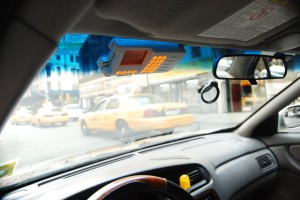 It was precisely 2 years ago while pursuing his MBA at Harvard University when Shelby Clark, CEO of Relay Rides, came up with the idea. He began his program with a strong interest in social entrepreneurship, having worked previously at Kiva.org , which performs peer-to-peer microfinance lending. Clark was part of Kiva in its early stages, being the sixth person involved and helped the company grow into one of the fastest growing non-profits of all time. In Clark’s mind, Kiva connected people online for the sake of alleviating poverty. They leveraged the Internet to make connections that otherwise couldn’t be made, and then used those connections to better allocate resources.
It was precisely 2 years ago while pursuing his MBA at Harvard University when Shelby Clark, CEO of Relay Rides, came up with the idea. He began his program with a strong interest in social entrepreneurship, having worked previously at Kiva.org , which performs peer-to-peer microfinance lending. Clark was part of Kiva in its early stages, being the sixth person involved and helped the company grow into one of the fastest growing non-profits of all time. In Clark’s mind, Kiva connected people online for the sake of alleviating poverty. They leveraged the Internet to make connections that otherwise couldn’t be made, and then used those connections to better allocate resources.
While at Kiva, Clark began to use Zipcar: “I loved it. I was planning on buying a car, and Zipcar worked well enough for me that I didn’t need to. I loved the idea of living without a car, and still have all the benefits of car ownership. I saved a lot of money, I drove a lot less, and it just made a lot of sense.” Clark loved the idea or car sharing, but in practice it began to break down when he had trouble getting cars when and where he needed them, “I found that if I wasn’t reserving a car two or three days in advance, then all of the cars near me were booked and I’d have to walk pretty far in order to get to a car.”

It all then culminated for Clark on one terrible Boston winter day two years ago. He needed a car that day, so he hopped online and reserved the closest car to him, which was 2.5 miles away. Trudging through the harsh winter to get to the car, he noticed that he was passing by hundreds of cars that clearly hadn’t been driven in weeks. It then clicked in his mind, going back to the principles had learned at Kiva, that a peer-to-peer car sharing model would ultimately better for everybody.
How does it Work?
If you have a car, and decide to enroll it in Relay Rides the first thing they do is install a small electronic device in the car. The device provides access to somebody during reservation. Each member of Relay Rides is given a smart card, which they simply hover over a sensor in the windshields and the car unlocks thus eliminating the need to exchange keys. The device also includes security features, which immobilizes the engine so the car cannot be started without a valid reservation along with helpful tracking and mileage components to detect how far the car was driven.

After that, the car owner gets to setup how the car is used. Relay Rides helps the owner setup a weekly schedule that the user can modify indicating when and where the car is available and what price they should charge per use. Clark explains, “We try to make ourselves a very economical alternative to Zipcars. Our cars are similarly price, but tend to be about 10 to 20% cheaper.” One of the nice features that the Relay Rides system provides is the ability to read MBTA Charlie Cards. Relay Ride conveniently takes the ten-digits off the front of the card, and make that your official smart card. On top of the necessary infrastructure needed for owners, Relay Ride also provides a million dollar insurance policy that protects against damages and theft.
The term collaborative consumption, coined by Rachel Botsman and Roo Rogers authors of “What’s Mine is Yours,” is used to describe the cultural and economic force away from ‘hyper-consumption’ to re-invented economic models of sharing, swapping, bartering, trading or renting that have been enabled by advances in social media and peer-to-peer online platform. Clark explains, “We obviously believe very whole-heartedly in the collaborative consumption movement, and it’s really exciting for us to be a part of it. It’s really great for this to be much greater than Relay Rides, and very much a cultural revolution that’s strictly positive. It’s a smarter use of resources. For instance, there’s no need to own a DVD when you can simply access it from Netflix. It leads to an increase in utility in that you can get more for paying less, and less waste since less items need to be produced to fulfill demand. One of the reasons you’re seeing this happen now is that as technology and the social networks behind that continue to develop it’s reducing the friction to sharing. It’s making access almost more convenient than ownership. Relay Rides is just one small part of this movement, and we’re really excited to see it succeed.”
Last month, Relay Rides was awarded one of the $50,000 prizes in the Mass Challenge. In addition to winning the prize money, Relay Rides connected with Mass Challenge mentor Desmond Pieri. Things worked out so well between Pieri and Relay Rides that he was brought on as interim COO. Clark explains, “He’s [Pieri] become such an integral part to our business, and somebody that we wouldn’t have known if it wasn’t for Mass Challenge.
Moving forward, Relay Rides is very focused on their Boston pilot and learning as much as they can about their service and users. Later this month they will be launching their operation in Jamaica Plains with plans to launch in Allston in December. Relay Rides is excited to bring their service new areas around Boston and continue to figure out how they can make this a more reasonable, convenient transportation alternative for more people.

